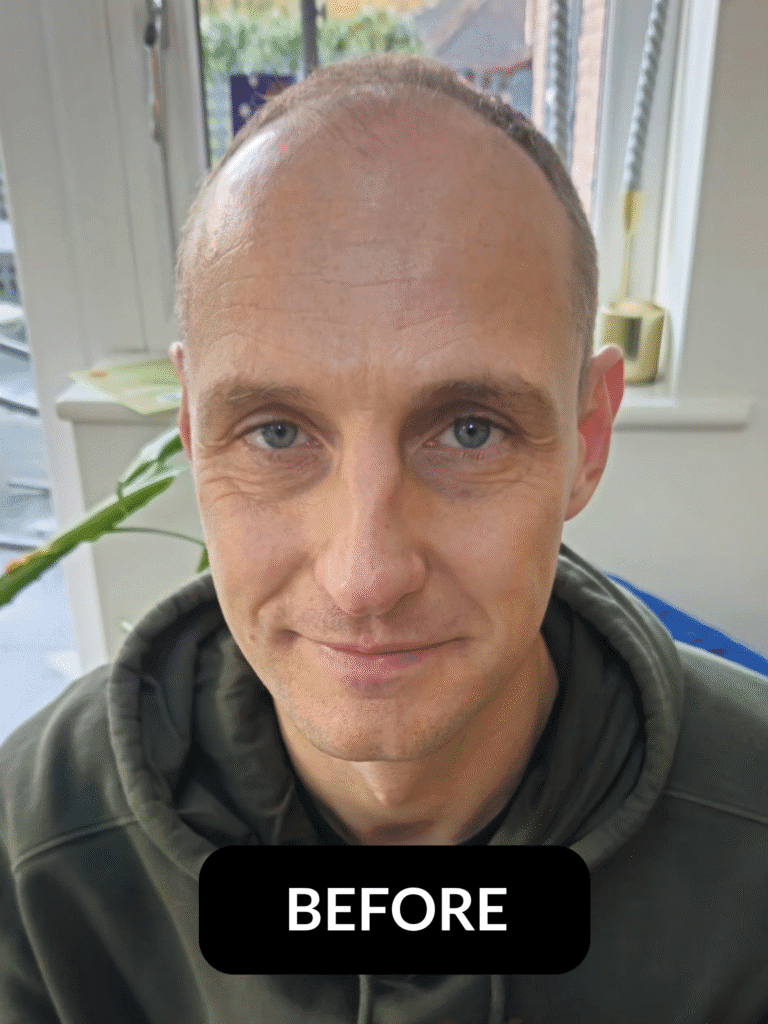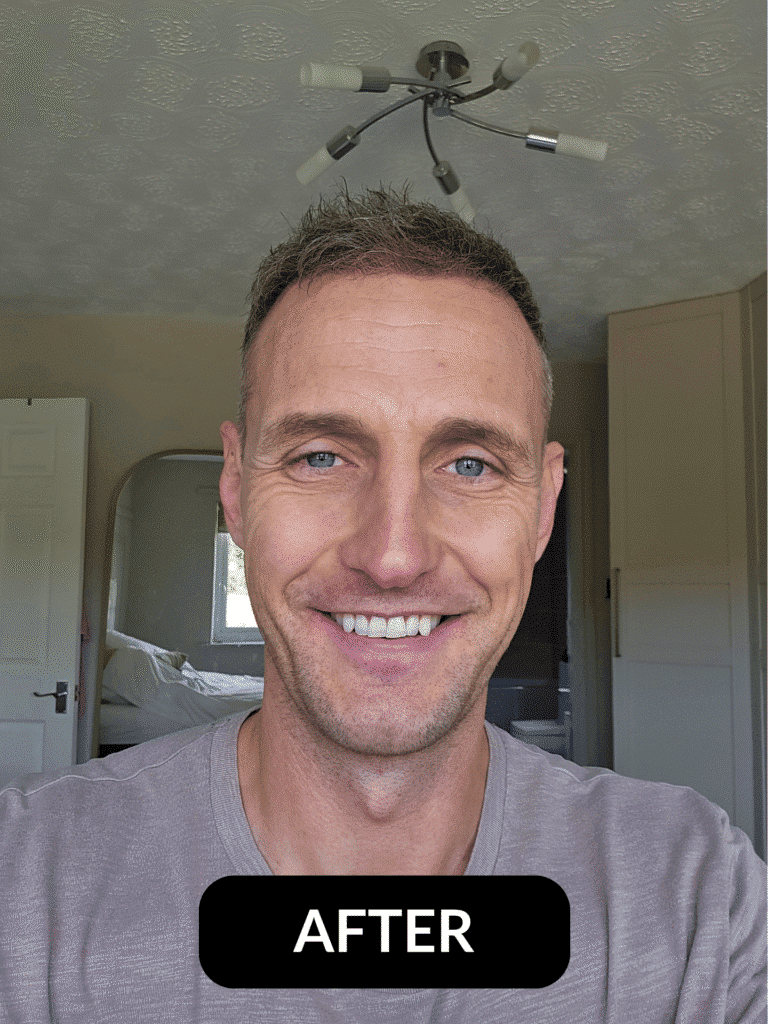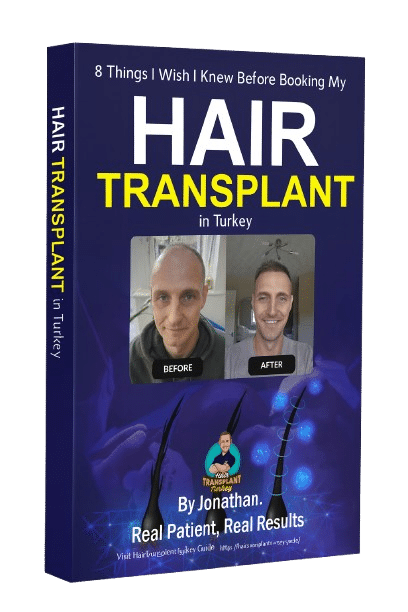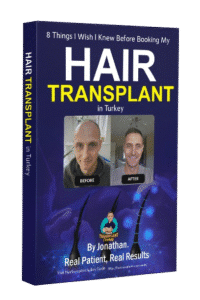When I flew to Istanbul in January 2025 for my hair transplant at Clinicana Hair Transplant & Esthetic Surgeries, I felt equal parts excitement and nerves. After years of hesitation, I’d finally committed — but I realised that the week leading up to the procedure was more important than I’d imagined. The way you prepare, both physically and mentally, can make a huge difference to your comfort, recovery, and even the final result.
This guide is my honest account of how I prepared for my transplant week — what worked, what I wish I’d done differently, and the evidence-backed tips I wish someone had told me sooner.
Understanding The Week Ahead
A “hair transplant week” really starts before you board your flight. In my case, there were three clear stages: the preparation at home, the procedure itself, and the immediate recovery afterwards. Each stage blends into the next, and understanding that rhythm helps you feel much more in control.
Before flying, I made sure to arrange my paperwork, finalise my clinic booking, and stop certain habits and medications as advised. The day of surgery was straightforward: a detailed consultation, a careful hairline design, and around seven hours in the treatment chair. According to the International Society of Hair Restoration Surgery (ISHRS), this is standard for a modern FUE (Follicular Unit Extraction) procedure, which involves removing individual follicular units and re-implanting them into the thinning areas.
The days after the operation are just as vital. You’ll spend time resting, cleaning your scalp, and following post-op instructions. The ISHRS highlights that this phase is crucial for graft survival and healing. Clinicana made it easy for me — everything was scheduled through WhatsApp, from my airport pick-up to post-op check-ins. Knowing exactly what to expect took most of the anxiety away.
Once you understand how your week will unfold, the next question becomes obvious: what should you bring with you — and what should stay at home?

What To Pack Before Flying To Turkey
One thing I learned quickly is that packing well can make your entire experience far more comfortable. I wanted to travel light but not forget anything essential.
The first thing I packed was practicality. Button-up or zip-up shirts were a must because you can’t pull clothes over your head for several days after surgery without risking damage to your grafts. Loose, breathable clothing and comfortable slip-on shoes made travel days much easier — especially when moving between the clinic, hotel, and airport.
Clinicana included hotel accommodation and transfers in my package, so I didn’t need to worry about logistics, but I did bring printed copies and screenshots of all booking confirmations and messages — a small step that saved me a lot of stress.
One item I was especially grateful for was a neck pillow, however you won’t need to pack one as the clinic provides one for you. You’ll need to sleep in an upright or semi-upright position for a few nights after surgery to minimise swelling, and that pillow became my best friend. I also packed fragrance-free wipes, a small towel, and sunglasses for post-op comfort. The clinic provided most aftercare products — including saline spray, shampoo, and medication — so it’s worth checking what your own clinic includes before overpacking.
Turkey uses Type F electrical sockets, so I brought an adapter and a power bank to keep my phone charged during travel and recovery. Having travel insurance that covered medical procedures gave me extra peace of mind too, though thankfully I never needed it.
By the time I zipped up my suitcase, I felt genuinely ready. And that feeling — of being organised and prepared — really matters. It helps you focus on the experience itself, not the logistics.
What To Avoid Before And During Your Transplant Week
Good preparation also means knowing what to avoid. These are the small but crucial decisions that can affect your healing and results.
In the week leading up to surgery, I stopped drinking alcohol and avoided smoking entirely. Research published on PubMed Central confirms that both habits reduce blood flow and slow recovery, while increasing the risk of complications. I also avoided aspirin, ibuprofen, vitamin E, and fish oil — all of which can thin the blood and increase bleeding during surgery.
I cut out intense workouts a few days beforehand, too. Heavy exercise raises blood pressure, which can make swelling worse. Even something as simple as styling gel or hair spray is best avoided, since your scalp needs to be completely clean on the day of surgery.
After the operation, discipline becomes even more important. I’ll admit, the hardest part was resisting the urge to touch my scalp when it started to itch a few days later. But touching or scratching can easily dislodge grafts, and the ISHRS emphasises avoiding this in the first week of healing (source). I also stayed away from hot showers, saunas, and swimming pools — heat and bacteria are the enemies of early recovery.
Sleeping upright took some getting used to, but it genuinely helped reduce swelling. For three nights I propped myself up with pillows and that trusty travel neck cushion. By day four, the swelling had already started to fade.
When you prepare your body properly, your recovery feels smoother and more predictable — and that confidence matters just as much as the physical healing itself.
Healthy Body, Healthy Scalp
In the week before flying out, I treated my preparation like pre-season training. A hair transplant might be minimally invasive, but it’s still a surgical procedure — and your body needs to be ready to heal.
I made sure to eat well, focusing on lean proteins, fruits, and foods rich in vitamin C, which supports tissue repair. I drank plenty of water and avoided caffeine on the morning of surgery, since it can raise blood pressure. The night before, I prioritised sleep; waking up rested helped me feel calm when I arrived at the clinic.
During my pre-op consultation, Clinicana’s medical team checked my vital signs, reviewed my health history, and explained every stage of the process. That professional attention put me at ease — and it reminded me that good clinics follow international standards. The World Health Organization actually advises choosing regulated medical providers abroad, and Clinicana’s location inside Acıbadem Taksim Hospital was a big part of why I trusted them.
Your preparation isn’t only physical, though. A calm, positive mindset will carry you through the experience just as much as good nutrition or rest.
Preparing Your Mindset
When you’re about to change something as personal as your hair, emotions run high. I remember sitting in my hotel room the night before surgery feeling a mix of excitement and doubt — wondering whether I’d made the right decision.
The truth is, almost everyone feels that way. What helped me most was trusting the clinic and remembering why I’d chosen to go through with it. The professionalism of the Clinicana team, and the clear communication they maintained, made it easy to stay calm.
I also found it helpful to read other patients’ stories in forums like r/HairTransplants and to watch a few balanced YouTube videos, though I quickly learned to filter out the sensational or exaggerated posts. It’s better to take advice from reputable sources — for example, the Mayo Clinic reminds patients that final results develop over many months, not overnight. Keeping that realistic mindset helps manage expectations and reduces post-op anxiety.
When your head is in the right place, the experience becomes something to look forward to rather than fear.
Travelling Home And The Days After
The morning after my surgery, Clinicana arranged for a complimentary scalp cleaning. My swelling had started, but they reassured me it was temporary — and they were right. A little puffiness around the eyes for two or three days is completely normal, as confirmed by The Treatment Rooms London.
Travelling home required a bit of extra care. I wore a loose shirt, avoided touching my head at airport security, and carried a doctor’s note from the clinic explaining that I’d had a minor medical procedure. That proved useful when the metal detector staff gave me a curious look. On the plane, I reclined slightly, used my neck pillow, and made sure nothing touched my grafts.
Once home, I followed Clinicana’s washing instructions to the letter — gentle rinsing, mild shampoo, and careful patting dry. It felt odd at first, but within ten days most of the scabbing had disappeared and the healing was well underway.
Following proper aftercare isn’t glamorous, but it’s what turns a successful surgery into a successful result. The ISHRS stresses that accessible post-operative support is a key part of any ethical hair transplant service, and I can confirm Clinicana provided exactly that through scheduled check-ins and WhatsApp support.
Your Hair Transplant Week Checklist
Although I’ve shared a lot of detail, the key takeaway is simple: prepare well, avoid the common mistakes, and stay calm. Here’s a short summary to keep in mind:
Pack light but smart — loose shirts, comfortable clothes, your travel pillow, and essentials like chargers and documents. Avoid alcohol, smoking, blood-thinning medications, and vigorous exercise before surgery. And after your procedure, handle your scalp gently, follow the clinic’s care routine, and sleep upright for the first few nights.
If you’d like a printable version of my full packing list and a more detailed pre-surgery checklist, you can download my free guide, 8 Things I Wish I Knew Before Booking My Hair Transplant in Turkey — it includes everything I learned, plus photos and real results from my own journey.

Conclusion: A Smooth Start To A New Chapter
Preparing for your hair transplant week isn’t about overthinking — it’s about taking small, deliberate steps that make the entire experience smoother. When I arrived at Clinicana, I felt calm and confident because I’d done the groundwork. From packing the right clothes to sleeping properly the night before, every bit of preparation paid off.
Months later, when I look at my reflection and see a natural, fuller hairline, I’m genuinely glad I took the time to prepare properly. If you’re planning your own trip to Turkey for a hair transplant, my best advice is simple: start your preparations now. You’ll thank yourself later.
Download my free guide to get my full checklist and video journey at hairtransplantturkey.guide, and step into your transplant week ready for one of the best decisions you’ll ever make.



 Continue with Google
Continue with Google